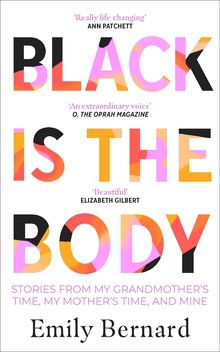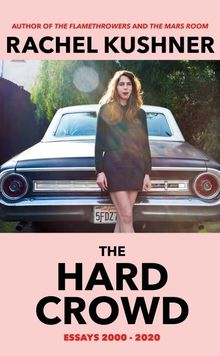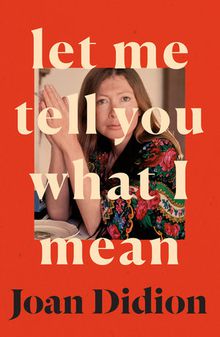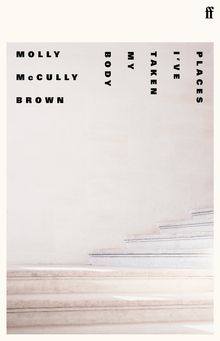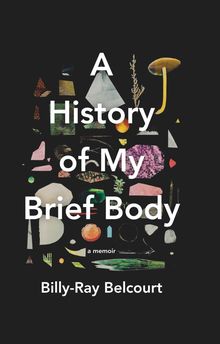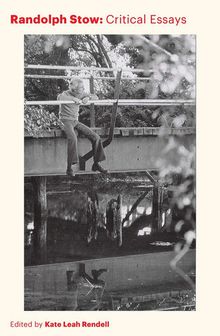What makes a body, a person, a life? Explore these questions, among others, through these newly released essay collections.
Black is the Body by Emily Bernard
In twelve intensely personal, interconnected essays, Emily Bernard sets out to tell stories from her life that enable her to talk about truth, race, family and relationships, and much more.
She observes the complexities and paradoxes, the haunting memories and ambushing realities of growing up black in the South with a family name inherited from a white man, of getting a PhD from Yale, of marrying a white man from the North, of adopting two babies from Ethiopia, of teaching at a white college and living in America’s New England today.
Ultimately, she shows us that it is in our shared experience of humanity that we find connection, happiness and hope.
The Hard Crowd by Rachel Kushner
In her twenties Rachel Kushner went to Mexico in pursuit of her first love - motorbikes - to compete in the notorious and deadly race, Cabo 1000. As fellow racers died on the roadside, bikes were stolen and friends abandoned one another in the heat of the chase, she crashed at 80mph and miraculously survived; soon after, she decided to leave her controlling boyfriend and manoeuvred her way into a freer new life.
The Hard Crowd is a white-knuckle ride through that life; a book about muscling your way through, finding your own path and, as she says in the hair-raising opening essay, ‘completing the ride without dying’. Charged with hot-blooded humanity - with anger against the world’s cruelties, and a free-wheeling passion for rare people, machines, movies, music, art and writing - it is an electrifying work about a woman’s determination to reach the finish line.
Let Me Tell You What I Mean by Joan Didion
From one of our most iconic and influential writers: twelve pieces never before collected that offer an illuminating glimpse into the mind and process of this legendary figure.
Mostly drawn from the earliest part of her astonishing five-decade career, Didion writes about a Gamblers Anonymous meeting, a visit to William Randolph Hearst’s castle at San Simeon, a reunion of WWII veterans in Las Vegas, and about topics ranging from Nancy Reagan to Robert Mapplethorpe, Martha Stewart and Ernest Hemingway. With an Introduction by Hilton Als, this stunning collection reveals what would become her subjects: the press, politics, California robber barons, women, the act of writing, and her own self-doubt. Each piece is classic Didion: incisive, bemused, and stunningly prescient.
Places I’ve Taken My Body by Molly McCully Brown
This metaphysical, intimate and visceral essay collection is stunning in its insight and suffused with optimism - Molly McCully Brown is the Rebecca Solnit of the body.
Brown constellates the subjects that define her inside and out: a disabled and conspicuous body, a religious conversion, a missing twin, a life in poetry. As she does, she depicts vividly for us not only her own life but a striking array of sites and topics, among them Mary Shelley’s Frankenstein and the world’s oldest anatomical theater, Eugenics, and Jerry Falwell’s Liberty University.
Throughout, Brown offers us the gift of her exquisite sentences, woven together in consideration, always, of what it means to be human: flawed, potent, feeling.
A History of My Brief Body by Billy-Ray Bellcourt
Billy-Ray Belcourt’s collection of personal essays opens with a tender letter to his kokum and memories of his early life in the hamlet of Joussard, Alberta, and on the Driftpile Cree Nation.
From there, it expands to encompass the big and broken world around him, in all its complexity and contradictions: a legacy of colonial violence and the joy that flourishes in spite of it, first loves and first loves lost, sexual exploration and intimacy, and the act of writing as a survival instinct and a way to grieve. What emerges is not only a profound meditation on memory, gender, anger, shame and ecstasy, but also the outline of a way forward.
With startling honesty, and in a voice distinctly and assuredly his own, Belcourt situates his life experiences within a constellation of seminal queer texts, among which this book is sure to earn its place.
Randolph Stow: Critical Essays edited by Kate Leah Rendell
Randolph Stow (1935-2010) was a writer who resisted critical containment. His complete oeuvre of eight novels, a children’s novella, a libretto, translation work and several collections of poetry presents an accomplished and impressive literary legacy.
The collection republishes a number of significant essays but also presents new readings acknowledging the remarkable skill as well as the limitations of Stow’s literary imagining. All are a testimony to the resonance of Stow’s writing while acknowledging the critical complexities of his work.


